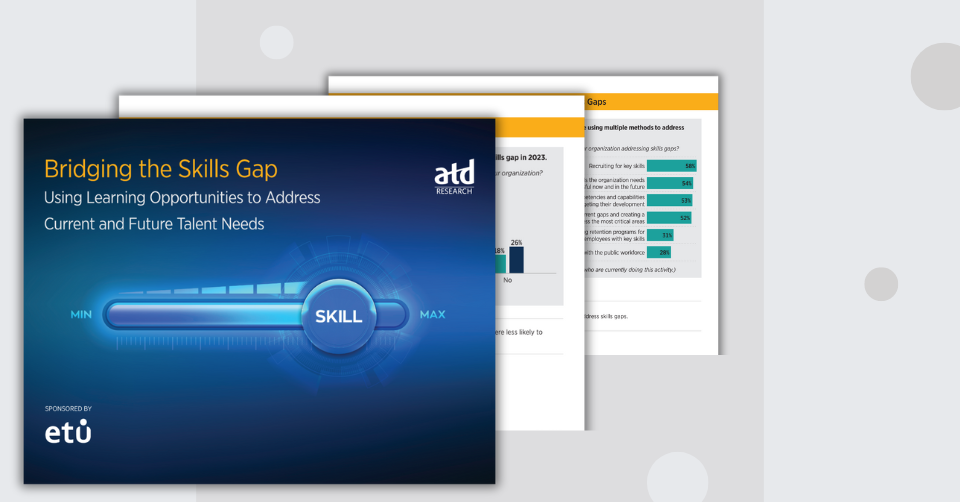Why experiential learning is a game-changer for corporate training

In today's fast-paced business world, traditional training methods often fall short. Your team needs to do more than just understand concepts; they need to apply them, adapt to change, and lead with confidence. This is where experiential, immersive learning comes in.
Forget dry lectures and passive online modules. We're talking about hands-on, realistic simulations that allow your employees to practice critical skills in a safe, engaging environment. And while this approach has proven invaluable in higher education, its benefits for corporate learning are even more profound.
Why "learning by doing" works wonders for your employees
Imagine a training program where your team members aren't just absorbing information, but actively participating, making decisions, and seeing the immediate impact of their choices. That's the power of experiential simulations.
- Practice in a safe space: Mistakes are inevitable when learning, but in the real world, they can be costly. Immersive simulations provide a risk-free environment where your team can experiment with different approaches, learn from errors, and refine their skills without any negative real-world consequences.
- Boosted confidence: Successfully navigating challenges within a simulation builds genuine self-assurance. As employees master new skills and overcome virtual obstacles, they gain a stronger belief in their abilities, preparing them to tackle similar situations on the job.
- Active & engaging learning: Unlike passive methods, immersive experiences demand active participation. This keeps learners highly engaged and motivated, leading to deeper understanding and more effective skill development for everyone.
- Enhanced self-awareness: Through reflecting on their actions and decisions in simulated scenarios, employees gain valuable insights into their strengths, weaknesses, and preferred working styles. This self-discovery fuels personal growth and helps identify areas for further development.
- Connecting theory to practice: Experiential learning bridges the gap between theoretical knowledge and practical application. By actively participating in realistic scenarios, your team develops an intuitive grasp of complex subjects, making the learning stick.
Developing strong corporate leaders
Your organization operates in a constantly evolving landscape. New technologies, shifting market demands, and diverse global teams require leaders who are agile, strategic, and empathetic. Without targeted leadership development, organizations can struggle with inefficient decision-making and resistance to change.
Experiential learning equips your leaders with the specific skills needed to thrive in this environment. Key competencies include:
- Strategic thinking & problem-solving: Leaders can practice formulating long-term visions and tackling complex issues like market shifts, new product launches, or resource allocation. Simulations allow for scenario planning and evaluating multiple strategies.
- Communication & intercultural competence: Effective leaders build consensus and foster collaboration across diverse teams. Simulations provide a space to practice persuasive communication, active listening, and adapting messages to various audiences.
- Empathy & perspective-taking: Understanding different viewpoints enhances conflict resolution and team motivation. Through role-playing in simulations, leaders can develop empathy and create more supportive, inclusive environments.
- Bias mitigation & inclusive practices: Identifying and addressing unconscious biases is crucial for equitable decision-making in hiring, promotions, and team management. Training focuses on recognizing biases and implementing fair policies.
- Change management & resilience: Leaders need to guide their teams through uncertainty, whether it's adopting new software or navigating an organizational restructuring. This skill involves inspiring adaptability and maintaining morale.
By investing in immersive leadership training, you're not just improving individual skills; you're enhancing operational efficiency, fostering innovation, and boosting employee retention, ultimately contributing to a more successful and impactful organization.
How immersive learning transforms your organization
Beyond individual skill development, experiential learning platforms offer significant advantages for your entire organization:
- Unified understanding & common language: Immersive learning establishes a shared understanding and consistent approach across your company. By exposing participants to similar scenarios, it creates a common language and baseline of skills, ensuring alignment on critical procedures and knowledge.
- Testing new strategies in a safe environment: These environments enable organizations to test and refine strategies for complex real-world problems. They simulate challenging situations, allowing teams to innovate, practice problem-solving, and develop effective, agile approaches before live implementation.
- Flexible & asynchronous learning: Many immersive learning platforms can be accessed on demand, allowing your team to engage with content at their own pace and schedule. This flexibility is perfect for geographically dispersed teams or those with diverse schedules, supporting continuous skill development without disrupting workflows.
Want to see how this could work in your organization?
Try an immersive learning simulation here.

